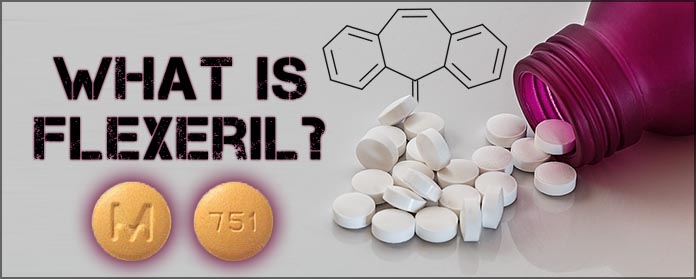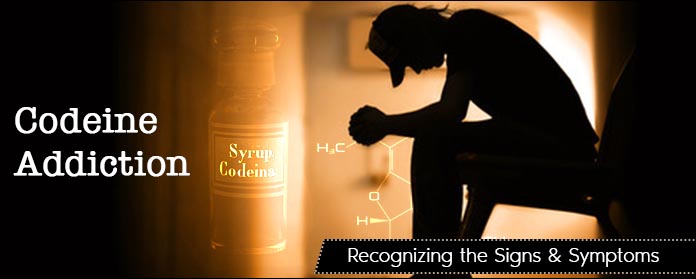It’s no secret that drug abuse and addiction is a national crisis in the United States.
One of the most serious prescription addictions that has ended or nearly ended the lives of countless victims is Flexeril.
Flexeril, a commonly-prescribed muscle relaxant.
Because it’s so easy to develop a tolerance to Flexeril, many people don’t even realize how dependent they’ve become on the drug until it’s too late.
Learn more about Flexeril addiction — and what you can do to stop it — by reading this post.
What Is Flexeril?
Before we get into anything else, let’s talk about what Flexeril is.
When used correctly, Flexeril (or cyclobenzaprine by its generic name) is used as a muscle relaxant.
It’s used especially on patients who struggle with moderate to severe muscle spasms.
It can also help people recovering from muscle sprains and other injuries to feel more comfortable as their bodies begin to heal.
Many people don’t realize that Flexeril is meant to be used as only a short-term medication. In most cases, those given a Flexeril prescription should use it for no more than three weeks in total.
This is because it’s a highly addictive medication.
Many people soon feel that they can’t get enough of the Flexeril high.
Your body can develop a tolerance to this medication incredibly quickly. This means that you’ll need to take more of this medicine in order to experience the same effects as you did before.
In many cases, this is how the cycle of addiction begins.
The Effects of Abusing a Flexeril Dosage
It goes without saying that long-term use of any prescription medication should be seriously considered and discussed with a doctor.
But when you begin to abuse Flexeril?
There are serious consequences that taking it in the long-term — and playing fast and loose with your dosage — can have on your body.
These drugs, after all, aren’t meant to be used over the course of several months, or even years.
First of all, be aware that it can damage your central nervous system because it acts as a depressant. You may put yourself at a higher risk of having seizures and convulsions.
You will soon notice that your overall muscle mass and tone have declined.
When abused, muscle relaxants can also damage your white blood cells.
This makes you much more likely to get sick or catch an infection. You may also face an enlarged liver or spleen.
However, Flexeril abuse does the most damage to your body’s kidneys, as this is where the drug is processed through the body. You are at a greater risk for hepatitis, you may deal with jaundice, and bile may not be able to flow through the liver to your intestines.
This can actually cause you to overdose because your body is holding onto the medication.
Common Short-Term Flexeril Side Effects
Of course, abusing Flexeril doesn’t just harm your body in the long term.
Though you may get a bit of relief as soon as you take this prescription, you will likely experience fairly severe and certainly uncomfortable withdrawal side effects.
You may notice a spike in your overall levels of anxiety and depression. You may deal with near constant ringing in the ears, break out into hives or rashes all over the body, and you may even feel faint when you stand up.
Abusing Flexeril can also lead to difficulty in urinating, strange and frightening dreams and hallucinations, and even mental psychosis.
Especially if you currently have mental health issues and take SSRI’s or anti-depressants, these side effects may become more intense.
Signs of Addiction to Flexeril
If you suspect that someone you love has developed an addiction to Flexeril — or if you’re concerned that your own usage of the drug has gotten out of hand — we know that you’re looking for the signs of addiction.
You may notice that the person seems tired all of the time and that they’ve started to nod off in the middle of the day or even while in conversation with you.
Be on the lookout for intense mood swings, as well as extreme and seemingly unprovoked outbursts of anger or sadness.
In some cases, you may notice that the addict has withdrawn and has attempted to isolate themselves socially. Whenever you bring up your concerns about their behavior, they become incredibly defensive.
You may even suspect that they’re draining their savings and retirement accounts — or outright stealing money — in order to fund their habits.
Remember that an addiction to Flexeril can happen quite quickly. These changes in behaviors may be shocking, but they are a clear sign that something’s the matter.
Do you notice any drastic changes in their work, relationships with friends and family members, and physical appearance? You should consider getting them help.
Are You Considering Treatment for Flexeril Addiction?
Whether you’re concerned for yourself or for someone you love, it’s an incredibly brave first step to look for treatment options for an addiction to Flexeril.
Detoxing and getting clean on your own doesn’t just come with a low probability for lasting success. It can also be incredibly dangerous to your health to go cold turkey.
You need to find a treatment facility that knows how to ensure that you’re safe both medically and psychologically during your recovery.
When you’re ready to start getting control over your life again, we want to help.
We have lots of information on different types of addiction, the best treatment centers for you or someone you care about, and even what to expect after treatment.
Get help now, or start learning more about the recovery process with our guidance.






